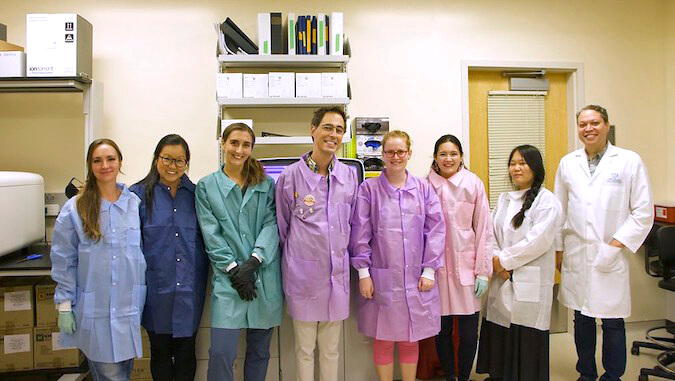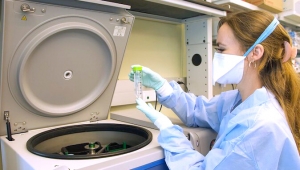
University of Hawaiʻi at Mānoa Native Hawaiian biomedical researcher Alika Maunakea of the John A. Burns School of Medicine (JABSOM) is leading a new study involving a diverse multidisciplinary collaboration probing the socioecological determinants of diabetes risks in Native Hawaiians and Pacific Islanders (NHPI) in Hawaiʻi. The National Institutes of Health awarded the study a five-year, $3.3 million grant in response to the National Institute on Minority Health and Health Disparities "Social Epigenomics" R01 funding opportunity announcement.
Appearing as early as the age of 35 on average, NHPI minorities suffer from Type-2 diabetes mellitus-more than in any other racial or ethnic populations in Hawaiʻi. Although social determinants of health such as socioeconomic status are implicated in contributing to this increased prevalence at the population-level, little is known about the underlying biological mechanisms that determine how these adverse social factors might influence the risk of developing diabetes at the individual-level. This public impact research is seeking to fill these gaps in knowledge.

Although recent advances in medicine allow for more accurate diagnoses of diabetes, early detection and risk assessment remains very limited. "Identifying the cell and molecular changes that occur as a result of social factors that precede diabetes will be a game changer—allowing us to predict how soon an individual might be developing diabetes before the disease manifests. This work is part of the future of personalized medicine," Maunakea said.
The study "Socioecological Determinants of Immunoepigenetic Signatures of Diabetes Risk in Indigenous Communities," involves a multidisciplinary team of scientists from JABSOM, UH Economic Research Organization (UHERO), UH Cancer Center, University of California San Francisco and Rutgers University.
First study of its kind
"This study has many firsts," said Maunakea, an associate professor in the Department of Anatomy, Biochemistry & Physiology. "It will be the first study to examine the relationship between immune cell epigenetics and the gut microbiome; it is the first to gather cell and molecular data relevant to diabetes in a social network setting; and it is the first epigenome and microbiome study to engage a relatively young group of individuals in the Native Hawaiian and Pacific Islander population. We hope this study will be the first of many that will help us move the dial back against diabetes and establish health equity in our culturally rich communities, which must start by enabling prevention."
"Our preliminary data from previous studies has shown that NHPIs who changed certain social or lifestyle factors, such as diet and health behaviors, also experienced significant improvements to their health at the molecular level," said Ruben Juarez, a professor in economics and social networks expert at UHERO. "The interaction between these social factors and biological processes will be examined to understand their collective impact on diabetes risk."
JABSOM Dean Jerris Hedges added, "This project highlights the role of high-impact team science at the University of Hawaiʻi addressing the needs of Native Hawaiian and Pacific Islander communities that are among the most affected by diabetes."
This research is an example of UH Mānoa's goal of Excellence in Research: Advancing the Research and Creative Work Enterprise (PDF), one of four goals identified in the 2015-25 Strategic Plan (PDF), updated in December 2020.






